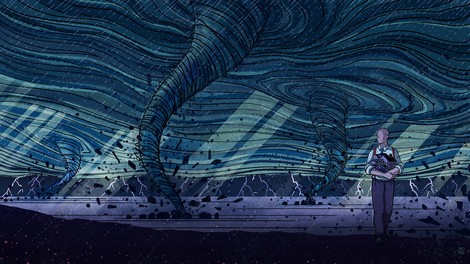Your podcast discovery platform
Curious minds select the most fascinating podcasts from around the world. Discover hand-piqd audio recommendations on your favorite topics.

piqer for: Health and Sanity Global finds
I was born in 1987 in Bucharest. I studied Psychology and Educational Sciences at the University of Bucharest. For two years I worked in a psychotherapy practice, dealing with gambling addicts. I'm an independent reporter, writing and doing video reportages mostly about social and political issues. I am currently based in Jena.
What Do You Do In The Face Of Uncertainty?
Around this time last year – roughly one year since I followed my partner to Germany – I started noticing this weird new habit I had picked up: whenever someone casually asked what Bucharest is like, I would launch into extensive praise of its beauty and subversiveness, its underground culture and talented people. I quickly felt very embarrassed about what looked a little like nationalistic behaviour and stopped doing it. Actually, I grudgingly stopped talking about my home altogether, hoping that that would make me miss it less. I recently shared this story with a fellow migrant I met on the internet and he reassured me that he had gone through a similar phase too – i.e. praising the motherland – and that it doesn’t mean I’ve turned into an extremist, but that I was insecure and I needed to fall back on something certain and familiar to be able to cope with all the unknowns surrounding me.
It turns out my friend was spot on with his assumption: studies show that people faced with a huge amount of uncertainty are bound to be more fervent in their beliefs about how important their birth country, language and nationality are to their cultural identity.
If you want to find out what other people do when they don’t know what to do, listen to this episode of Invisibilia, because it explores the big scary force of uncertainty in shaping our behaviour—and it does so through the stories of a weatherman and an FBI hostage negotiator.
